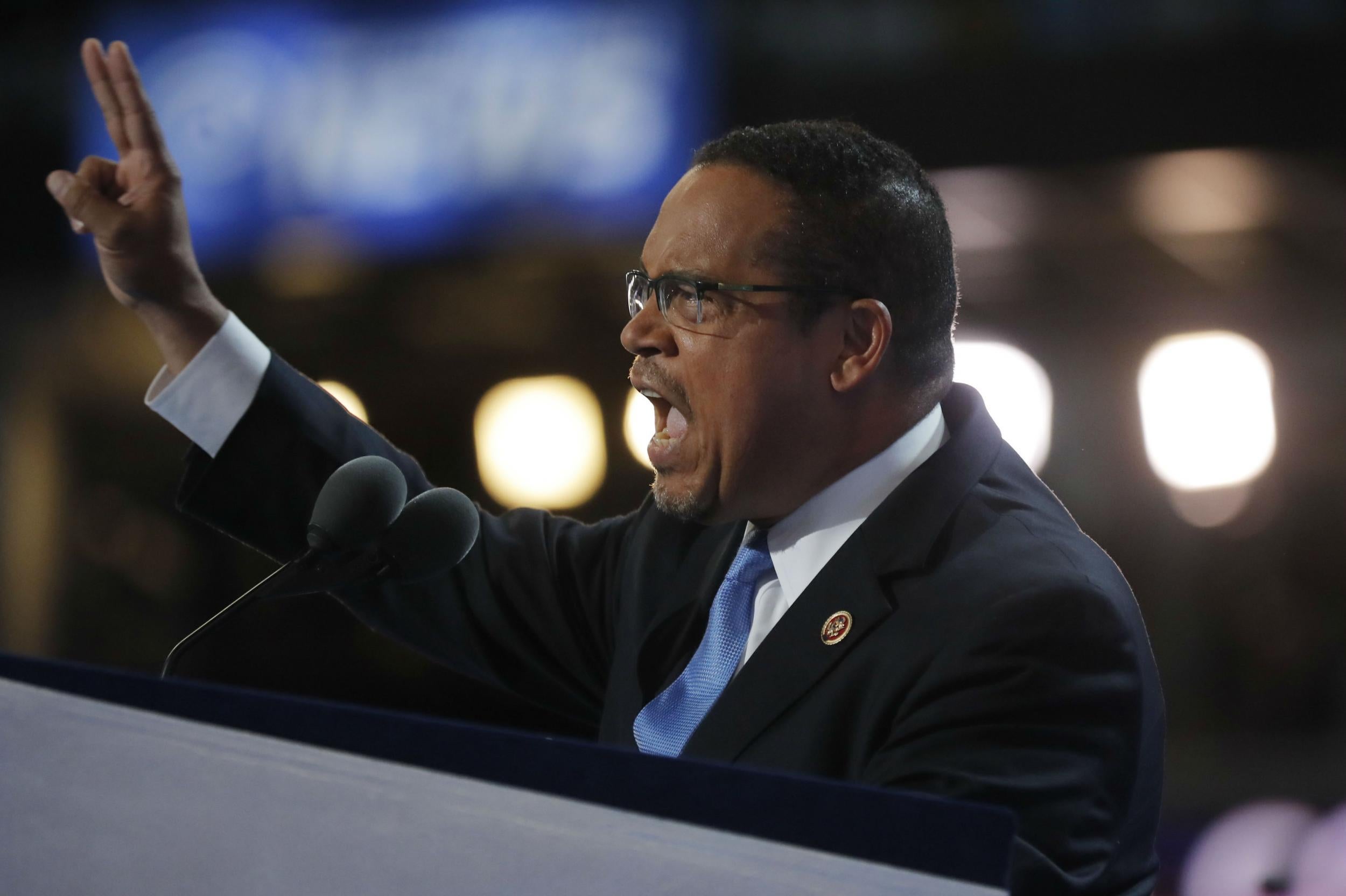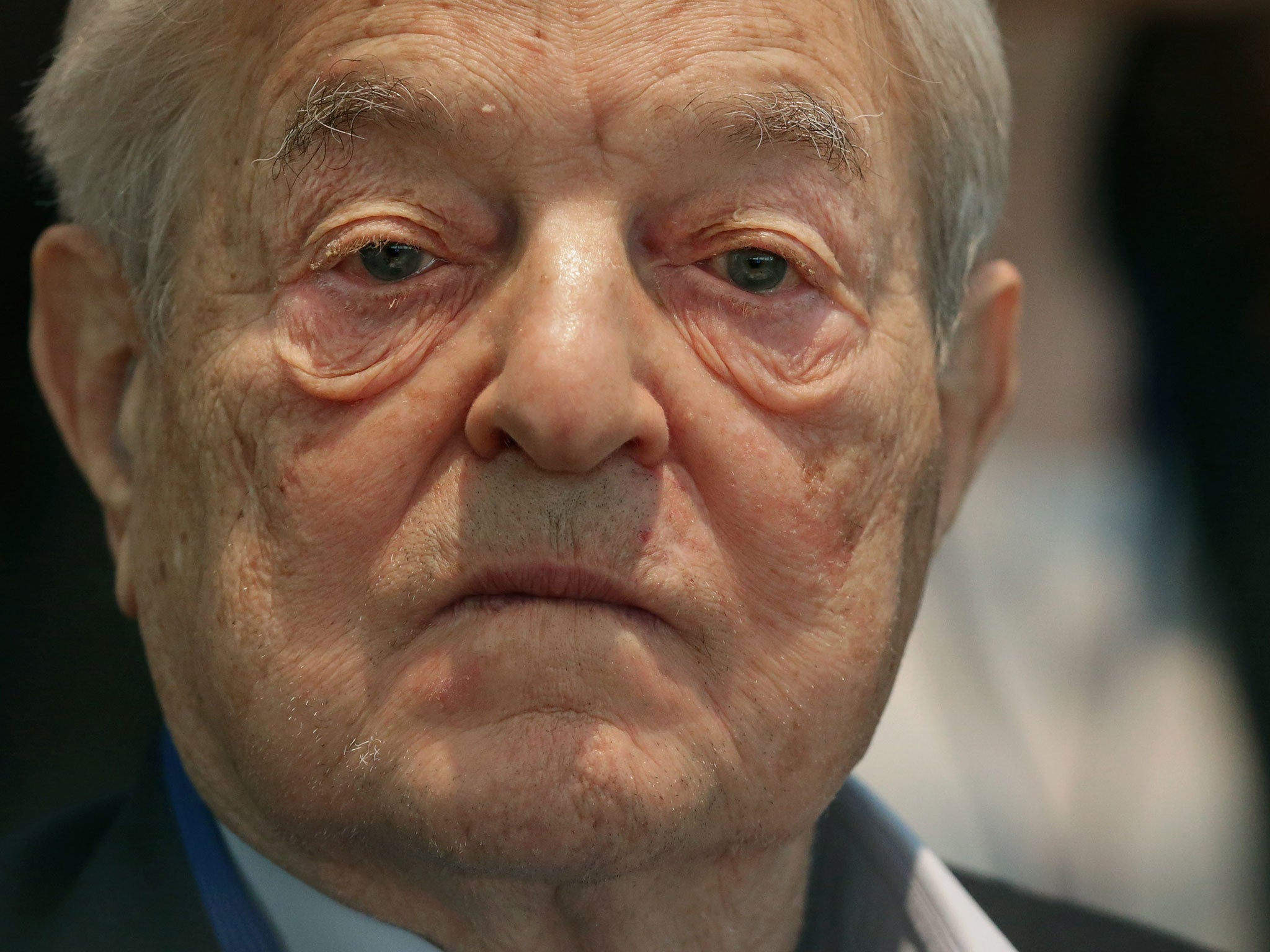Stopping Donald Trump from remaining in power for eight years becomes top priority for hobbled Democrats
A storm has already erupted over who should head the Democratic National Committee

Plunged into an identity crisis it didn’t see coming, the Democratic Party in America has little time to prepare for its next urgent task: stopping Donald Trump from being a two-term president.
But settling on a strategy to ensure the President-elect does not remain in office for eight years could prove daunting for a party in disarray. At the heart of its agony: must it now take a sharp leftward turn, both in policy priorities and the leadership it now chooses, to regain relevance or must it hold steady to the more middle-ground vision it has followed the past quarter-century?
Already a first major storm has erupted, the outcome of which will render many clues about which route it takes: who will become the chair of the Democratic National Committee (DNC)?
Several candidates have emerged, including, most notably, Keith Ellison, a black and Muslim member of Congress from Minnesota, whose election to the post would be widely taken as an indicator that those demanding a leftward shift are in the ascendancy. Mr Ellison formally declared his candidacy on Monday. "I will work tirelessly to make the Democratic Party an organisation that brings us together and advances an agnedat that improves people's lives," he said in a statement.
Even once that struggle is settled – others possibly in the fray include Howard Dean, the former Governor of Vermont who has already served in the position, and Martin O’Malley, the former Governor of Maryland – there is the other, still greater problem to confront: the shallowness of its bench of new talent from which a viable 2020 challenger to Mr Trump might be drawn.
Some of the party’s mega-donors, including the billionaire financier George Soros, were already gathered in Washington on Monday for three days of brainstorming about the party’s future now that it has lost the White House and remains in the minority in both chambers of Congress. Mr Soros is thought to have spent $25m (£20m) in 2016 on Democrat causes and on trying to get Hillary Clinton and other Democrats elected, money that he may now think he has wasted.
Among those due to address the group, known as the Democracy Alliance donor club, on Monday afternoon was Congressman Ellison, who has already won support as the next DNC chair from Bernie Sanders and the retiring Minority Leader in the Senate, Harry Reid. House Democratic leader Nancy Pelosi and Senator Elizabeth Warren, herself a possible future nominee in 2020, were also on the list of guest speakers at the conference, being held at the luxury Washington Mandarin Hotel.
Yet some on the left of the party believe the sway that figures such as Mr Soros have held over its leadership has been part of the problem, namely that the DNC and the whole party apparatus has been too focused on pleasing its elite donors while losing touch with working class Americans, who played so important a role in electing Mr Trump last Tuesday.
“You’ve got to have a vision to strengthen the grassroots,” Mr Ellison, co-chairman of the Congressional Progressive Caucus, said on ABC News at the weekend. “At the party unit, at the county level, at the precinct level, and then to help motivate and facilitate the local grassroots to get out there and turn out the vote and boost turnout.”
Indeed, deciding whether to stay the centrist course that Bill Clinton set the party on 25 years ago or to take a detour to the populist the left – echoing, perhaps, the mission of Jeremy Corbyn as head of the Labour Party in Britain – seems to some to be the wrong debate. It is not ideology that matters so much as reconnecting the party to the voters it thought it represented.
“We should make the voters first. Not the donors first,” Mr Ellison said. “I love the donors and we thank them, but it has to be that the guys in barber shop, the lady at the diner, the folks who are worried about their plant is going to close – they’ve got to be our focus.
Mr Sanders, the maverick left-wing Senator from Vermont who proved highly competitive against Ms Clinton in the Democrat primaries and who is not ruling out trying again in 2020 even though he would be in his late seventies, put the case even more strongly to CBS News.
“How did this happen?” he asked last week in reference to the party’s debacle. “The Democrats have focused too much with the liberal elite, which is raising incredible sums of money from wealthy people, the upper middle class, but has ignored to a very significant degree the working class and the middle class and lower-income people in this country.”
“You’ve got to make a decision which side you are on,” Mr. Sanders went on. “Democrats have got to stand for the working people of this country.”

Preventing the re-election of Mr Trump ultimately means finding the right candidates to do it and in the aftermath of this election the sentiment of many is that anyone who is part of the professional political class is automatically disqualified, or at least would struggle to shake off the cloak of the establishment that in this cycle proved so unhelpful.
Among Democrats apparently manoeuvering already with 2020 in mind is Governor Andrew Cuomo of New York, who wrote a vigorous call to arms to his party to resist the Trump agenda in The New York Daily News. Yet, as the son of the late Governor Mario Cuomo and as a former member of Bill Clinton’s cabinet, he would hardly seem the right material if the party concludes it must look beyond the establishment for figures to excite the grassroots base.
“We will fight as fiercely as we can, at every opportunity that presents itself, to reject the hateful attitudes that pervaded throughout the 2016 campaign,” Governor Cuomo wrote.
Senator Corey Booker, the former Mayor of Newark, New Jersey, and an African American, with a skill for impassioned rhetoric might seem a more plausible choice, even though he too would come at the race after six years on Capitol Hill.
If no one can identify the most likely next Democrat nominee, maybe that is precisely as it should be. Because he or she will not already be ensconced in the party establishment. Rather they will be a non-politician, whose task it will be to topple the man who precisely used his non-politician status to win in 2016.
Join our commenting forum
Join thought-provoking conversations, follow other Independent readers and see their replies
Comments
Bookmark popover
Removed from bookmarks